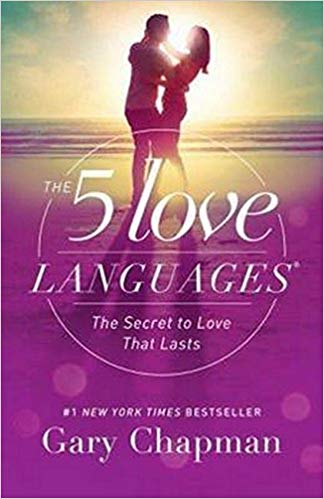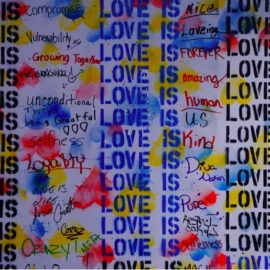

This article is an excerpt from the Shortform summary of "The 5 Love Languages" by Gary Chapman. Shortform has the world's best summaries of books you should be reading.
Like this article? Sign up for a free trial here .
What is love? What is a love tank? And how can I keep my love tank full?
A love tank is the part of us that represents our emotional need for love. This term was coined by Gary Chapman in The 5 Love Languages.
Read on to learn more about love tanks and why keeping them full is so important.
Filling Your Love Tank
Like your fuel tank in your car, your love tank The desire for love stems from a primary urge within us to fill our tanks.
When our love tanks are full, everything seems possible. The world seems more open and beautiful.
When our love tanks are empty, our worldview can become narrow and pessimistic. It’s crucial that we take action when our love tanks are empty.
Keeping Your Love Tank Full
We are animals in nature. Just as the lion has a primal urge to hunt, humans have a primal need to experience intimacy and affection. Committed relationships are sought to address that urge and keep our love tanks full forever.
But being in love is not the same thing as living with love.
When we fall in love, we are experiencing a temporary filling of our love tanks because of the love high, regardless of how it is delivered. In this early state, we feel euphoric and understood. We feel powerful and confident.
But the in-love experience is short-lived. As the euphoria wanes, our primal urge for our specific brand of love will reemerge. We will desire to receive love according to our language for it to remain over time.
When we stop feeling our particular love needs being met, our love tanks will slowly drain. And a relationship with a foundation of empty love tanks is not sustainable. When we feel our needs going unmet, our desire to meet the needs of our loved one diminishes. Empty love tanks may lead to arguments, estrangement, and resentment.
Full love tanks create an environment where love can be examined and curated for each partner’s needs.
Maintaining a full love tank is as important in a long-term relationship as having a full tank of gas is for operating a car. Without gas, our cars won’t run. We will be stranded on the side of the road. Likewise, with a full love tank, we can venture forward on our journey with our partners unimpeded.
But What Is Love?
The word “love” has become a catchall for expressing our likes or appreciation of something. For example, we may love it when it rains, but we also love pizza and our pets.
We love our partners, but we also may love a good joke or our favorite band. These general uses create a washed-out significance for the word, which can distance us from understanding what it really means. This can also distance us from knowing what we need to keep our love tanks full.
When we talk about love in a romantic relationship, we mean love that addresses our emotional selves. These emotional selves are constructed by our early experiences of receiving love or the opposite.
For instance, a child that receives love, companionship, and support from their parents will have a more stable idea of self and love. A child that does not receive adequate love will likely have a confused and desperate need for love and become emotionally unstable.
To ensure full love tanks in our relationships, we must acknowledge that we each bring different experiences and expectations into a relationship. Once we understand our foundations of love, we can start addressing how to fill each other’s love tanks.
———End of Preview———

Like what you just read? Read the rest of the world's best summary of "The 5 Love Languages" at Shortform . Learn the book's critical concepts in 20 minutes or less .
Here's what you'll find in our full The 5 Love Languages summary :
- How to figure out what your love language is, and what your partner's is
- Why arguments happen in relationships, and how to stop them
- How to speak the right love language, even if it's not yours






